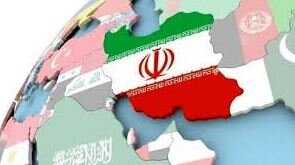Iran's strategic position in the new world order

TEHRAN – The logic of realism governing international relations dictates that the transition period from the existing order to the new international order is inevitably going through a period of disorder in which the current valid rules are challenged and the geopolitical structures of the previous order collapse.
In such circumstances, usually smaller actors and powers, either alone or in the form of new coalitions, are sometimes able to play more effective roles, and on the contrary, larger powers that were expected to play a serious role are sometimes left out of the game.
To be more precise; having capabilities and capacities commensurate with the new order that is being formed, which often have substantial differences from the components of the existing order, is one of the basic requirements for playing a role at the global level and establishing the position that countries have foreseen in their future vision and set goals to achieve.
The changing shape and nature of international conflicts in the present era, with the introduction of new elements into the set of power-generating components in the regional and global arenas (which have practically changed traditional confrontational strategies in a meaningful leap from one-dimensional and dry patterns to the use of combined and quantum patterns), is the same pivotal pillar that has laid the foundation for the formation of a new order on foundations different from the past.
With these interpretations; today, after less than half a century and despite many hostilities, Iran is experiencing entry into the first level of effective powers in the international system while being able to create all the power-generating components in this path independently of the currents and sources of power prevailing in the structure of the existing order and even higher than that, by producing new concepts of soft and smart power in the global arena, it has practically challenged the main actors of the existing order to an existential level.
Scientific, informational, and military capabilities, along with the ongoing cultural-identity discourse, as well as the optimal use of the element of "national cohesion," have enabled Iran to reach a position of authority and active deterrence in managing imposed impulses and challenges, as well as spiritual influence in the heart of the opposing front. Today, many scholars and analysts in the field of international relations and futurists of the global community believe that Iran will undoubtedly play a pivotal role in the structure of the power geometry in the new order that is being formed.
To be more precise, Iran is one of the few emerging powers that, relying on principles such as "independence, negation of foreign domination, resistance, and reliance on the power and will of domestic forces," has been able to impose its power and authority on the will of the West while challenging existing structures and theories.
This is precisely why, in the new hybrid models, the main weapon of Western powers in confronting Iran, instead of using hard power alone, has been specifically focused on cognitive-perceptual wars and maximum use of soft and intelligent power tools, in order to capture the mind of Iranian society and instill weakness in it, thereby causing structural disruptions to its growth and development.
This is while, looking at history, it can be said with confidence that post-Islamic Iran has never been so powerful, independent, and influential. There is much evidence and examples in support of this proposition that inevitably leads any analyst to conclude that Iran stands at the center of the new world order.
